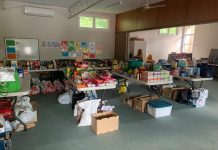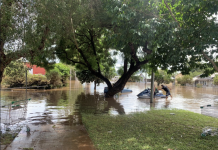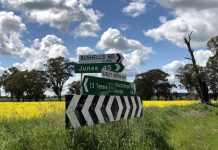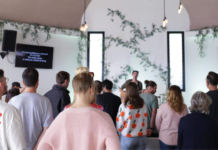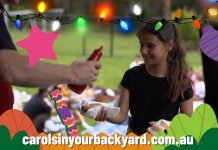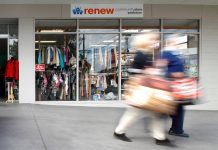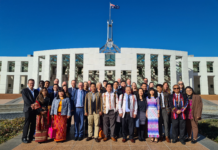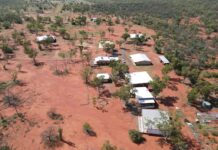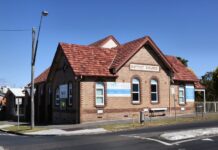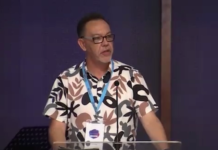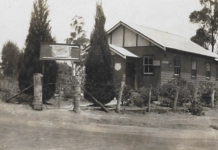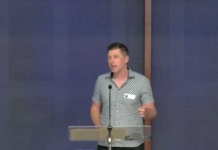From the capital to the coast and 400km west to the country, the Baptist Association is supporting churches of all shapes and sizes as they seek to address Safe Church issues and provide safe spaces for people to engage with and grow in the gospel. Mosaic, Forbes and Cardiff Heights Baptist Churches represent some of the diversity of our movement; Mosaic is managing hundreds of volunteers, Forbes has a small rural community, and Cardiff Heights is somewhere in between. Yet they have all completed the Safe Church Health Check – and have some advice for other churches…
Mosaic Baptist (ACT)
Mosaic Baptist in Canberra is a multi-site church with nearly 200 volunteers across six congregations. The clearly missional heart of Mosaic is demonstrated in the fact that they have been consciously working toward Safe ministry practices for several years. Bronwyn Parsons explains the process of engaging with the Safe Church Health Check: “Kids and Youth Ministries were first to get on board, happily cooperating by completing forms, signing up to Creating Safe Spaces workshops, and registering for their Working with Vulnerable People cards.”
While NSW has the WWCC system, in the ACT the equivalent is the Working With Vulnerable People check. Anyone who works with children, young people or vulnerable adults must have the check. The leaders of Mosaic decided that, particularly with their size and missional heart, it was important that all volunteers had a WWVP and completed Creating Safe Spaces training * . To promote this, Bronwyn called for everyone to “get the four”, meaning:
1. Sign the Volunteer Code of Conduct
2. Sign the Safe Ministry Check Questionnaire
3. Obtain their WWVP card
4. Attend a Creating Safe Spaces (CSS) workshop
* Note: By requiring “the four” for all volunteers (not just those working with children or vulnerable people), Mosaic Church leaders have voluntarily chosen to go beyond the requirements outlined in our Safe Church Package of model documents.
This call to “get the four” was repeated through regular reminders in the weekly email – Bits N Pieces, verbal encouragements in services, and announcements in the video news. But even all this work only went so far. The older generation questioned ‘why’ they needed to have these forms and checks in place for something they have ‘done’ without question for years. Bronwyn notes that “it took a lot of work to educate people that safety at church was not just for the sake of children but for anyone who was vulnerable within our community. We drove home the point that safety is everyone’s responsibility, and we have a responsibility to restore the reputation of the Church in the eyes of the community.”
Mosaic submitted an application for the Safe Church Health Check in April 2020, just as Covid lockdowns hit. They soon found there were volunteers across the various congregations that had not completed the Screening Questionnaire – just when services were becoming briefer, online and without advertisements or announcements. Bronwyn admits that this was “a major hurdle”!
“We had to rely on email and the personal approach to individuals, sending out reminders and copies of forms, placing weekly encouraging updates in Bits N Pieces of the numbers who ‘had the four’, promoting Zoom CSS workshops, encouraging, encouraging, encouraging! We equipped our pastors with a Safe Church bundle – a folder of forms, our promotional pamphlet, Zoom workshop dates – and would quiz them each time we saw them as to whether they had any completed forms to hand in!”
“We now have close to 200 individuals who are Safe Church Verified, representing approximately one third of those who worship regularly with us,” Bronwyn shares. “Sadly, we’ve lost a few individuals in the process. We knew that there would be some who would be late adopters or not engage for numerous reasons. Some of our ministry teams have been affected by reduced volunteer numbers, which has been hard, but we make no apologies in now being able to say “Mosaic is Safe Church approved”.”
Top tips from Mosaic Baptist Church:
- clear and consistent messaging – for example “have you got the four?”, “this isn’t just about kids”
- personal approach
- be prepared for cultural change
- it helps to have a champion (At Mosaic, Bronwyn has been that “champion”, and welcomes hearing from anyone who is interested in hearing more about their SafeChurch journey. Contact her at bronwyn.parsons@mosaicbaptist.org.au)
“safety is everyone’s responsibility, and we have a responsibility to restore the reputation of the Church in the eyes of the community.”
Forbes Baptist
While Mosaic is a large church right in the nation’s capital, Forbes Baptist Church is over 400km from Sydney, in a town where the population is only 8500. Each Sunday, the church welcomes about 65 adults and 25-30 kids, and has a number of children’s ministries. Like Mosaic, Forbes benefited from strong leadership in the area of Safe Church practice. At their 2019 AGM the leadership team presented a summary of the Child Safe Standards and explained the importance of committing to those principles. A team of five, including the pastor, attended the Safe Church Health Check Information Session in November 2019 and then divided up the requirements between them.
With few paid staff for many rural churches, doing so much admin and paperwork can seem daunting and overwhelming. But the beauty of rural ministry is that you know everyone and their gifts/background, so can put together a team who are willing to help by using their skills/expertise. For Forbes Baptist, each individual on said team could take a Standard or two that they felt passionate about and do their homework on it – and really own it (which empowered them)!
During the next 6 months, the team met monthly to check progress, and used email between the committee with updates, questions, and issues. In this time it was vital to communicate with FBC ministry coordinators. There was a leaders’ update session in February 2020 with the Why? What? How? When? for the safe church process for FBC, and then some one-on-one sessions with coordinators to assist them along the way with resources and templates. Ministry coordinators were very receptive and supportive of the process, and communication was key. There have definitely been some changes in the ways ministries are conducted at FBC (e.g. signing in, ministry information sheets).
“We are very thankful that the Baptist Churches of NSW & ACT have been so proactive in addressing the Safe Church Health issue so comprehensively, and providing such great resources and support to enable churches in NSW to be accredited as Safe Churches…We’ve had coordinators and parents thank us, and confirm just how important this process is for our kids, our volunteers, our church, and our wider community of Forbes.”
Top tips from Forbes Baptist Church:
- explain the purpose
- divide the work across a team
- communicate regularly
- involve the ministry leaders
- be prepared for cultural change
Cardiff Heights Baptist
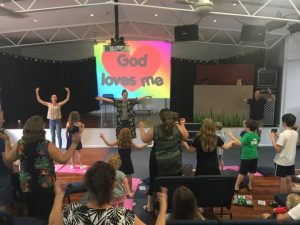 A medium-sized church of around 150 people on the outskirts of Newcastle, Cardiff Heights Baptist Church has a diverse community ranging from babies through to those in their mid-nineties. With two weekly services, a wide range of ministries and two full-time pastors, Cardiff Heights has been working on Safe Church practices for more than five years.
A medium-sized church of around 150 people on the outskirts of Newcastle, Cardiff Heights Baptist Church has a diverse community ranging from babies through to those in their mid-nineties. With two weekly services, a wide range of ministries and two full-time pastors, Cardiff Heights has been working on Safe Church practices for more than five years.
Associate Pastor Warren Moore commenced a process of interview and accountability in 2017 and has found the church very willing to participate in Creating Safe Spaces and provide WWCC details where necessary. Despite this great start, when the Safe Church Health Check was launched, Warren found there were still several issues that needed to be addressed. Although the implementation took some time, Warren found it to be a really helpful process. “The interview and paperwork process was handled by a small team of three, and it was a pleasant experience to review and look at ministry procedures. It was a strong reminder to have a good process when engaging volunteers before they partake in a particular ministry. We had positive conversations with all involved in church ministries. Now some church attendees have indicated that they feel more secure with the knowledge that there are detailed procedures to follow and identified people to approach if any issues arise. We are pleased that the Association has led our movement to be at the forefront of engaging with these issues and we hope to be a great example and resource for other local churches as they implement Safe Church practices in their own context.”
Top tips from Cardiff Heights Baptist Church:
- have a good process in place for before volunteers commence
- encourage Safe Team and ministry leaders to participate in the Advanced Creating Safe Spaces training
- seek help/clarification from Katie if you get stuck or you can’t quite see how to implement something in your context.
–
–
The Association have provided a range of model documents to help churches get started. I have the following advice for any church just starting out with this process…
1. Commit: Church leadership/governance body commits to Safe Church implementation and appoints a Safe Church Team. The Safe Church Team need to be mature, approachable and able to maintain confidentiality. There should be people from different areas of the church if possible, and both genders must be represented.
2. Adopt policies: Have the Safe Church Team consider the model documents and make any amendments necessary for your context.
3. Implement: Safe Church Team and ministry leaders implement Safe Church policies (the biggest job is usually screening, training & induction of volunteers)
4. Finalise: Draft the application form – this often identifies one or more further issues to address.
5. Submit application: applications can be submitting online, via email or by post. Even once you have completed the Safe Church Health Check, it is important to maintain consistency and keep this important aspect of community building top of mind.
If you would like any further details, see here or contact me at kwatson@nswactbaptists.org.au
–
Written by Katie Watson (Safe Church Coordinator)

